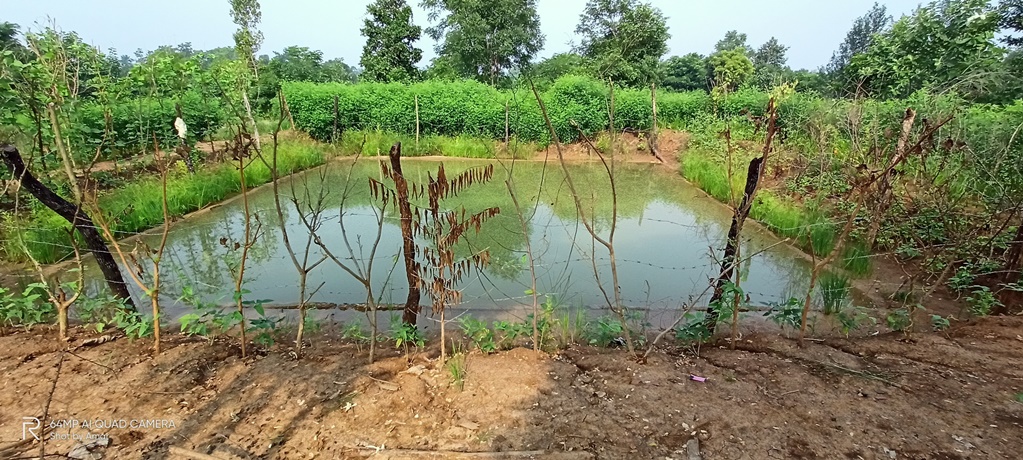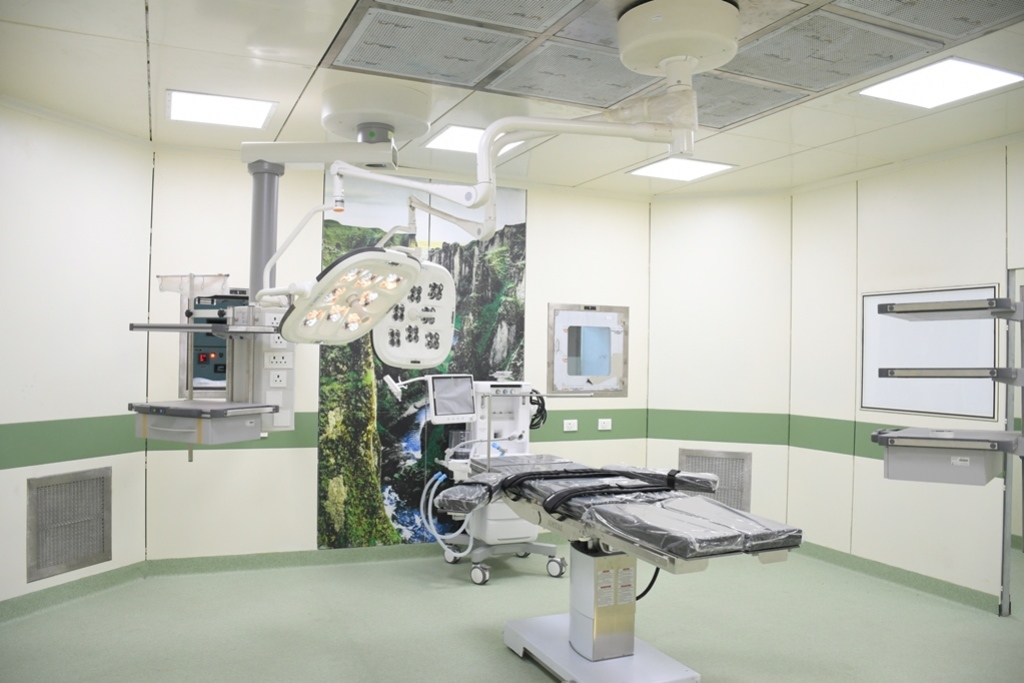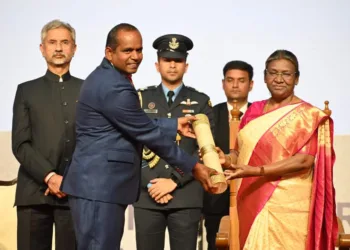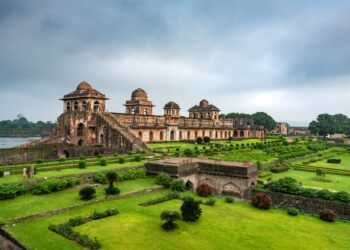From providing for comfortable stay for doctors and nurses during the pandemic; supporting education of children orphaned by communal
violence; building infrastructure in government schools; providing cancer treatment facilities and improving rural livelihoods, POWERGRID’s range of work constitutes a shining example of how a PSU can contribute to the economic and social development of the nation
BY PARSA VENKATESHWAR RAO JR
Public Sector Undertakings (PSUs) have often got bad press over the years. Before the era of reforms began in 1971, they were blamed for bureaucratic snags, and for everything that went with the name of socialism. And after the 1991 reforms, the demand was that PSUs must
be privatised because they are loss-making units. And there has always been the argument that the private sector is better than the public sector in terms of efficiency, and in recruiting people on merit. There is much truth in these charges, but when they become settled prejudices in the minds of people then the public sector is viewed with suspicion and hostility. But many PSUs have functioned efficiently, have nourished talent in terms of personnel, and have made huge profits. It is for this reason that successive governments had to reassign many of the good PSUs as gems of performance, especially in the infrastructure sectors like oil, gas and power.

The Power Grid Corporation of India Ltd (POWERGRID) is one of the shining examples of how a PSU performs well, contributes to the success of the nation and, more importantly, fulfils its Corporate Social Responsibility (CSR) obligations with creativity, imagination and compassion.
This has come to the fore especially during the Covid-19 pandemic, but even before that the corporation has been devoting its CSR funds to education and health, the social infrastructure segments which are most neglected. It has also set a good example of reaching out to regions and people who need help rather than building facilities in urban centres where they are of little use.

Vinod Kumar Singh, Director (Personnel), moved from a multinational in the private sector to the Power Grid Corporation of India Limited and has grown with the corporation over the decades. In an interview with Pravasi Indians, Singh revealed many interesting aspects of the
progress made and the CSR work undertaken by the corporation. He said that the corporation undertakes CSR works mainly on its own and also implements the projects through state govt. and other govt. agencies. It has been a learning process as in the case of building toilets as part of the Swachh Bharat campaign. The school toilets were initially constructed and handed over to State Education Department. Now running water facility is being provided in addition to their repair/rectification.
The Power Grid Corporation of India has spent modest but impressive amounts, two percent of its profits, on its CSR activities. It has spent ₹196 crore in 2018- 19, ₹346 crore in 2019-20, ₹240 crore in 2020-21, ₹257 crore in 2021-22, and now has a target of ₹304 crore for FY2022-23.
EXCERPTS FROM THE INTERVIEW:
The Covid-19 pandemic must have been a great challenge in your CSR work. What has been the corporation’s contribution?
During the Covid-19 pandemic, recognising the pressing urgency of the situation, we set up the Oxygen Generation Plant at Tau Devi Lal Stadium in Gurugram, Haryana, in August 2021, and another at Jaisalmer in Rajasthan, which was commissioned in June 2021. Through its dedicated effort of contributing towards better healthcare facilities, POWERGRID has provided cold chain equipment (181 ice lined refrigerators and 130 deep freezers) costing around ₹2.66 crore to Punjab, Sikkim, Mizoram and the Union Territory of Ladakh.
We have also provided two insulated vans for facilitating the Covid-19 vaccination drive in the remote areas of Ladakh. One of our flagship projects is our Vishram Sadans, to provide accommodation to families of patients in major hospitals across the country. Many of them have been completed and others are in various stages of completion. A majority of the people utilising the services come from economically weaker sections of society. During the pandemic, Vishram Sadans provided comfortable stay for doctors and nurses who were working round the clock in government hospitals.
We consider this a feather in our CSR cap.
Do you take up long-term commitment for the upkeep of the projects you undertake?
We do take into consideration the assets that will be created and their maintenance before we take up any project or plan any project which involves asset creation that may require maintenance. The concerned authorities are briefed about such projects in advance and prior commitment is taken regarding the maintenance, which also ensures the sense of belonging. However, periodically, we also make regular visits to assets we have created to ensure that they are in use for the said purpose, and to see if they require any further assistance from our end.
POWERGRID has been honoured with the National CSR Award by the Ministry of Corporate Affairs. What was the award-winning project?
POWERGRID and the International Crops Research Institute for the Semi-Arid Tropics (ICRISAT) came together to work on a project, Improving Rural Livelihoods through Farmer-centric Integrated Watershed Management. Ten villages in Bethamcherla mandal of Kurnool district, covering 7,711 hectares, were selected in consultation with the community. The overall goal of the POWERGRID-ICRISAT watershed initiative was to improve livelihoods of the rural poor on a sustainable basis through integrated watershed management initiatives and to develop pilot sites as a site of learning. To achieve this, 27 activities were planned and executed across the 10 villages. Based on the need assessment and feasibility, a total of 306 water harvesting structures and natural resource management (NRM) structures were built during the period (2014-2020), which include 18 check dams, four mini percolation tanks, and 167 farm ponds. Simultaneously, we took up a project site at Vijayapura district in Karnataka also.
The project got its due recognition from various platforms and the prestigious National CSR Award 2018 was conferred by the President of India on October 29, 2019 in the category.
We have replicated the project in Kalahandi, Odisha over the past one and a half years. In the first year itself, the project has benefited 1,750 households and it will be further implemented over the next two to three years.
I believe you have done some projects in the field of education also. What kind of projects have you taken up in that field and what is your experience?
Yes, our second most important focus is in the field of education, from basic infrastructure development to providing digital education access to rural India. Our recent focus has been on developing smart classes which we have taken up in Haryana, Rajasthan, Assam, etc. We have taken up 810 smart classes in 405 schools of various districts in Haryana. Likewise, we have also taken up the initiative with Army Goodwill
Schools in Jammu and Kashmir.
In the Northeast (Assam and Manipur), POWERGRID has initiated a project to support education of children affected by communal and ethnic violence who have lost their parent(s). From 2014 till now we have supported approximately 1,600 children’s education from school level to
higher studies with our implementing partner, the National Foundation for Communal Harmony (NFCH) which is an autonomous organisation under the Ministry of Home Affairs.
Apart from the above, in rural India we have projects focused around infrastructure development in government schools which includes classroom buildings, hostels for students, playground development, furniture and other basic amenities to be made available for all.

We have learnt that POWERGRID is helping many hospitals in treatment of cancer.
POWERGRID has focused on one other particular area, which is cancer treatment. We have contributed towards creating an infrastructure specialised facility for patients. We have taken this initiative in collaboration with the Tata Memorial Centre (TMC), Mumbai. Financial assistance has been provided as part of funding along with the Department of Atomic Energy, Government of India for creating a Nuclear Medicine Theragnostic facility for patients undergoing radioisotope treatment at TMC/ACTREC, Mumbai. Further, the CSR project of equipping a Modular Operation Theatre at the Women and Child Hospital, ACTREC campus, TMC, Navi Mumbai is under progress. The proposed facilities will enable 10,000 advanced surgeries on cancer patients, predominantly women and children.
The Capacity Development Centre in Oncology at Dr B. Borooah Cancer Institute (BBCI), Guwahati under the CSR scheme of POWERGRID was inaugurated by the Governor of Assam, Prof. Jagdish Mukhi, on July 1, 2020. The new facility augments capacity development in the field of cancer research and education. It houses the Clinical Research Secretariat, Division of Molecular Epidemiology, Clinical Trial, Oncology Nursing Education in addition to a facility for accommodation of research scholars and visiting faculty.
Recently, POWERGRID has also taken up a project in Kerala for providing a Ring Gantry Linear Accelerator for radiotherapy treatment at the Regional Cancer Centre, Thiruvananthapuram.
What is the mechanism in the Power Grid Corporation to decide on CSR projects? Do you have a specific committee?
Our priority is taking up projects in proximity to our establishments which affect the stakeholders directly. As per the law, we have to spend minimum 2 percent of our profit on CSR. In POWERGRID, we assign the CSR spending with People and Planet at the back of our minds. Our basis of social and environmental responsibility is the 3Ps Principle, which is People, Planet, and Profit. Every project that we take up goes
through a rigorous process of Need Assessment, which looks into its coverage & impact on the society and the environment on a sustainable basis. Yes, POWERGRID has a CSR Committee.
You had mentioned during our conversation that you take up the projects and execute them in association with the district authorities without involving any other organisation. Do you think that has an advantage or you face challenges in execution?
Yes, a majority of projects are implemented directly by POWERGRID. If required at certain levels, the district administration is also involved for smooth implementation. However, we do have partnerships with some organisations when we need subject/ domain experts to implement our projects. For example, watershed management required experts in that field and we partnered with ICRISAT for that. The education support programme in the Northeast has a partnership with NFCH, which has control in difficult terrain; violence-affected areas are sensitive which
requires certain permissions and documentation, etc. For construction of Vishram Sadans in various government hospitals we partnered with Hospital Services Consultancy Corporation Limited (HSCC India).








